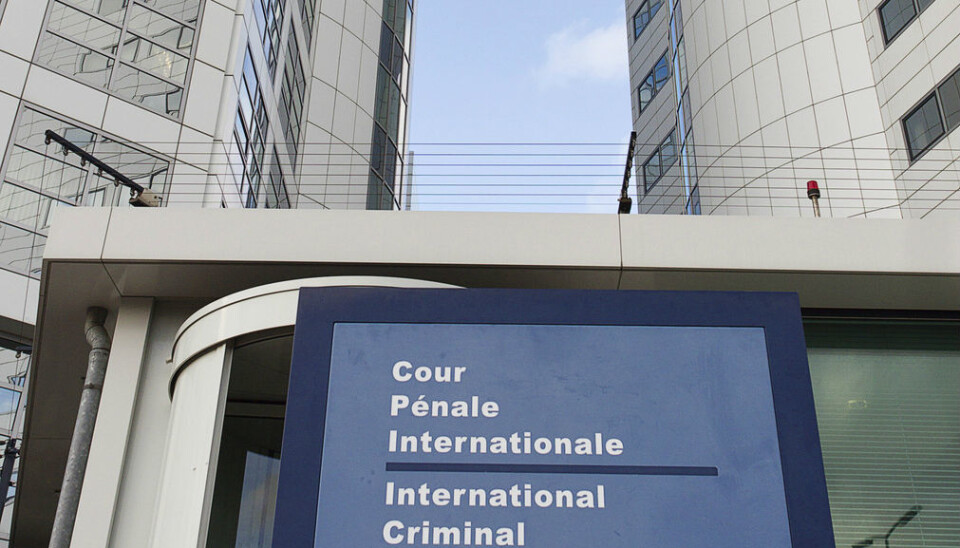An article from University of Oslo

Does international criminal justice still matter?
In April more than 30 people were killed by a chemical weapon attack in Syria. Despite clear evidence that serious international crimes have been committed, and despite numerous calls to hold those responsible to account, the international criminal justice system seems, at present at least, to be impotent.
If international criminal justice is unable to respond to what is arguably the most blatant disregard of international norms in modern times, could the Syrian conflict mark the beginning of the end for the international criminal justice project?
Beginnings
Modern international criminal courts and tribunals date back to the Second World War.
“During the Second World War the world became a witness to large scale, systematic attacks on human dignity. The crimes committed were unparalleled,” says Joanna Nicholson, postdoctoral fellow at PluriCourts – Centre for the Study of the Legitimate Roles of the Judiciary in the Global Order, University of Oslo.
In the aftermath of the War, those deemed most responsible for crimes in Nazi-Germany were tried in front of an international criminal tribunal at Nuremberg on charges of war crimes, crimes against humanity, and crimes against peace. Famously, the tribunal held:
‘crimes against international law are committed by men, not abstract entities, and only by punishing individuals who commit such crimes can the provisions of international law be enforced…individuals have international duties which transcend the national obligations of obedience imposed by the individual state.’
The tribunal has been criticized for many reasons, including that it represented ‘victors justice’, only trying people from the losing side. Nevertheless, it marked a beginning, and contemporary international criminal tribunals stand upon its shoulders.
“After the trials, and with the beginning of the cold war, attempts to build on the legacy of Nuremberg were put on hold”, says Nicholson.
Reawakening
After the fall of the Berlin war and the easing of relations between East and West, there was a new found optimism as to what international law could achieve. This was soon put into practice when two particularly brutal conflicts drew global attention.
In Europe, the secession of states from Yugoslavia saw the rise of a series of conflicts, where genocide, crimes against humanity and war crimes were committed on a scale unseen in Europe since the Second World War. While some countries were able to more or less peacefully withdraw, others were locked into an armed conflict with both ethnic and religious divides. One of the most notorious atrocities occurred at Srebrenica, where 8000 boys and men were murdered in the course of a few days.
The second incident to trigger the new growth of international criminal tribunals was the genocide in Rwanda. In less than 100 days more than 800,000 people were murdered based on their perceived ethnicity.
Following these events, the UN Security council passed resolutions creating two ad-hoc international tribunals, both located in the Hague, with the responsibility of holding those most responsible to account. This was to be a new experiment in international criminal justice.
“These tribunals have been hugely influential in interpreting and developing both international criminal law and the law of armed conflict”, Nicholson explains.
Golden years
Following the establishment of the International Criminal Tribunal for the former Yugoslavia (ICTY) and the International Criminal Tribunal for Rwanda (ICTR), international criminal law experienced some golden years.
“There was a real explosion of new tribunals, most notably, the International Criminal Court”, says Nicholson.
The latter was formed in 1998. At an international conference held in Rome, contrary to the expectations of many, states reached an agreement to form a new court. In 2002, enough countries had ratified the Rome Statute for the court to open its doors.
Additionally, a number of hybrid criminal courts were formed to deal with particular conflicts, such as those in Sierra Leone, Cambodia, and Lebanon. These combined elements of domestic and international systems and used a mixture of domestic and international judges and staff.
“The system of international criminal justice was imbued with a sense of optimism and hope as to what it could achieve. But then reality began to set in”, Nicholson says.
Reality begins to bite
International criminal justice did not prove to be the panacea many had hoped, for many reasons.
Some related to the institutions themselves. Each tribunal faced its own challenges. The ICTY was criticized for concentrating on some parties involved to the conflict and not others. The ICC was famously critiqued for only focusing on cases involving Africa and Africans, culminating in several African countries announcing their decisions to withdraw from the court in 2016. And, the court in Cambodia has been marred by allegations of political interference and bias.
“Other criticism centered on what international criminal justice can realistically achieve and what its broader goals are. Does it have a deterrent effect? Does it help or hinder peace? Can it provide justice for victims?” Nicholson explains.
The new realism
At present, international criminal justice is experiencing a reality check. Those involved in the field are undertaking a necessary period of reflection and re-evaluation. Nicholson thinks this is something to be embraced.
Although criticism continues, international criminal justice is here to stay in some form or another. While the Syrian conflict has served to highlight some difficulties within international criminal justice, there are reasons to be optimistic for future accountability.
“The calls to hold those responsible of committing war crimes or crimes against humanity to account, reflect a desire on the part of global society for some form of international criminal justice,” Nicholson argues, and continues, “undoubtedly, one day some of those most responsible for the atrocities being committed in Syria will see the inside of a courtroom.”
































